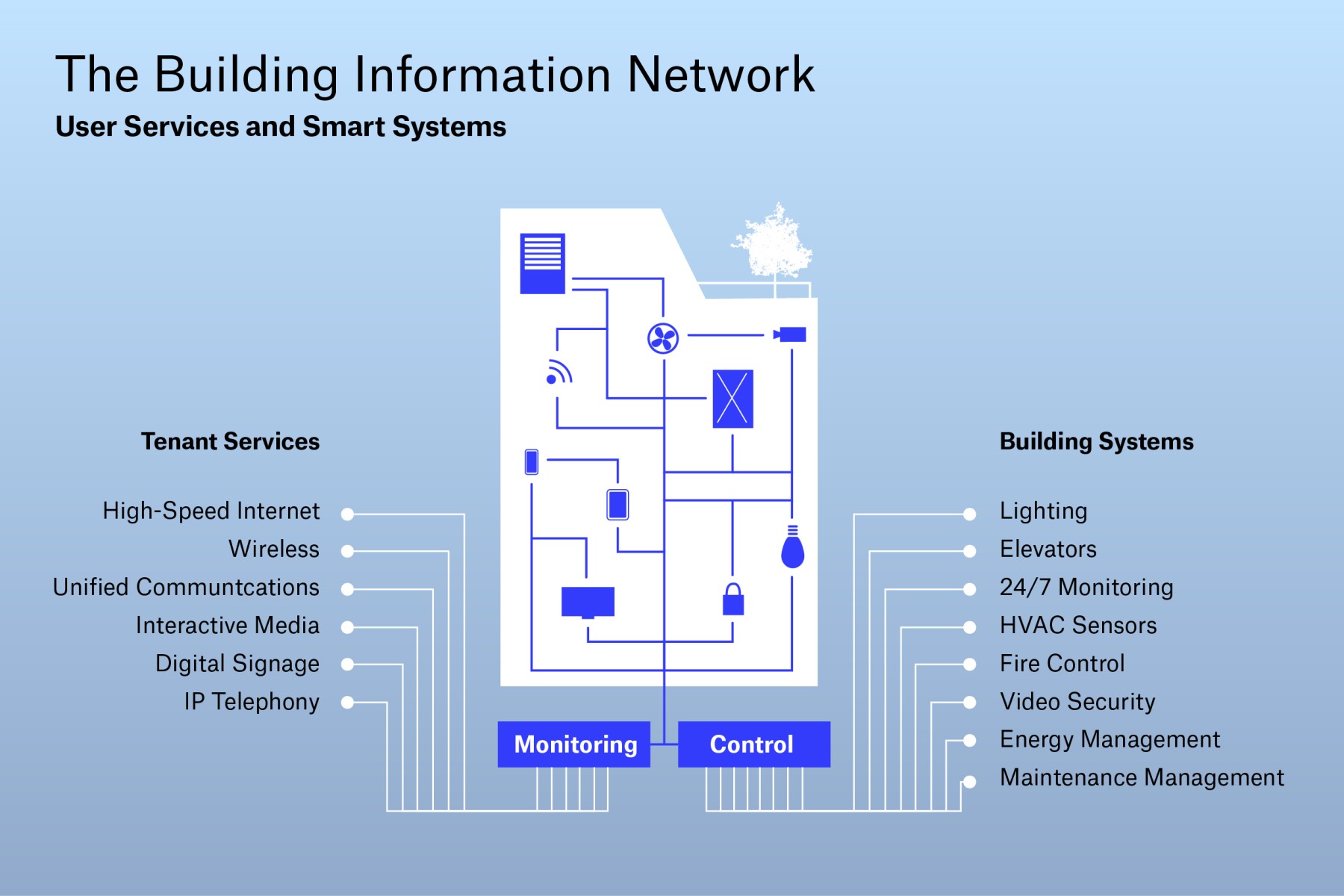

Connected Real Estate
Elevating Industry Standards
Our founder harnessed the power of the network effect within the real estate and construction industries.
Americas, Europe, Asia
Cisco
Digital leadership
Director with Cisco
Challenge
In the early 2000s, the global digital infrastructure company Cisco was seeking further avenues for growth; innovation was key to expansion and continued market dominance. The power of networked devices and digital communication was transforming a range of industries, with finance and other data-driven sectors leading the way. The real estate and construction industries represented both a challenge and an opportunity. They were among the slowest to adopt new technologies, but—in the form of buildings and workspace—they also shaped users’ experiences of those technologies. As Cisco engineered the physical networks and devices that brought the world online, they discovered the need for a new way of integrating digital systems into the planning, design, and execution of the built environment. As part of the company’s Real Estate Strategy and Innovation team, Wolfgang Wagener developed an approach for creating connected real estate.
Solution
Wolfgang’s insight was that internet connectivity should be planned for and strategically integrated into every stage of real estate development and construction. Treating digital infrastructure as the “fourth utility” would open a new market for Cisco and had the potential to transform how real estate and construction companies do business in the twenty-first century. Wolfgang co-created the business case for connected real estate, aligned with Cisco’s three-to-five-year goals, strategies, and annual initiatives. He established best practices for building relationships with real estate and construction clients through thought leadership, industry research, sales enablement, and customer briefings. His international experience in cutting-edge architectural practice, and expertise in high-performance building systems, provided a rigorous knowledge base for further innovation. And his human-centered approach enabled decision-making that enhanced user experiences and increased operational efficiencies for Cisco’s corporate real estate and for client organizations.
Impact
In the opening years of the twenty-first century—before the introduction of the iPhone, cloud, and big data—Wolfgang orchestrated the convergence of real estate and IT within Cisco and for clients around the world. His integrated approach, embedding digital infrastructure within the fabric of the built environment, enabled crucial innovation, market expansion, revenue generation, and new product development for Cisco. The Connected Real Estate initiative anticipated how building systems, operations, and occupant services could be networked, looking ahead to today’s internet of things. It also demonstrated how real estate could promote the business interests of a major corporation, creating value and guiding internal investments. The recognition of the real estate and construction ecosystem as an expanding arena for digital technology opened possibilities for further innovation, and the new levels of resource efficiency enabled by digital systems raised the industry’s environmental standards.






